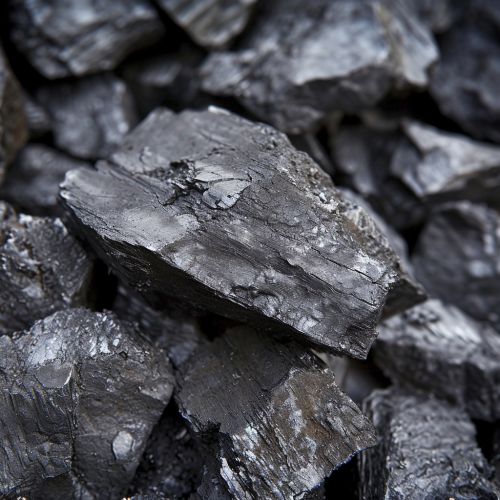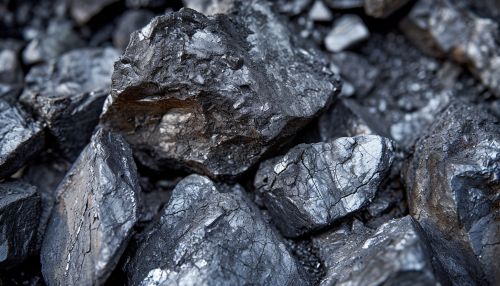Fossil fuel
Overview
Fossil fuels are hydrocarbon-containing natural resources that are formed from the remains of ancient plants and animals. These fuels, which include coal, petroleum, and natural gas, have been a primary source of energy for human civilization since the industrial revolution. They are non-renewable resources, as they take millions of years to form.
Formation
The formation of fossil fuels is a process that takes millions of years. It begins with the death of plants and animals, whose remains accumulate in aquatic environments. Over time, these remains are buried under layers of sediment and other geological materials. The pressure and heat from these layers transform the remains into hydrocarbons, the main component of fossil fuels.
Types
There are three main types of fossil fuels: coal, petroleum, and natural gas.
Coal


Coal is a black or brownish-black sedimentary rock that is primarily composed of carbon along with various other elements such as hydrogen, sulfur, oxygen, and nitrogen. It is formed from the remains of plants that lived and died about 300 to 400 million years ago.
Petroleum
Petroleum is a naturally occurring, yellow-to-black liquid found in geological formations beneath the Earth's surface. It is commonly refined into various types of fuels, including gasoline, diesel fuel, and jet fuel. Petroleum is formed from the remains of ancient marine organisms such as plankton and algae.
Natural Gas
Natural gas is a naturally occurring hydrocarbon gas mixture consisting primarily of methane, but commonly includes varying amounts of other higher alkanes and even a lesser percentage of carbon dioxide, nitrogen, and hydrogen sulfide. Natural gas is formed from the remains of ancient marine organisms.
Extraction and Use
Fossil fuels are extracted from the earth through a variety of methods, including drilling and mining. Once extracted, they are processed and used in a variety of ways, most commonly for heating, electricity generation, and as fuel for transportation.
Environmental Impact
The extraction, processing, and use of fossil fuels have significant environmental impacts. These include air and water pollution, land degradation, and global warming. The burning of fossil fuels releases carbon dioxide, a greenhouse gas, which contributes to climate change.
Alternatives
Given the environmental impacts of fossil fuels and their finite nature, there is a growing interest in alternative energy sources. These include renewable sources such as solar, wind, and hydroelectric power, as well as nuclear energy.
